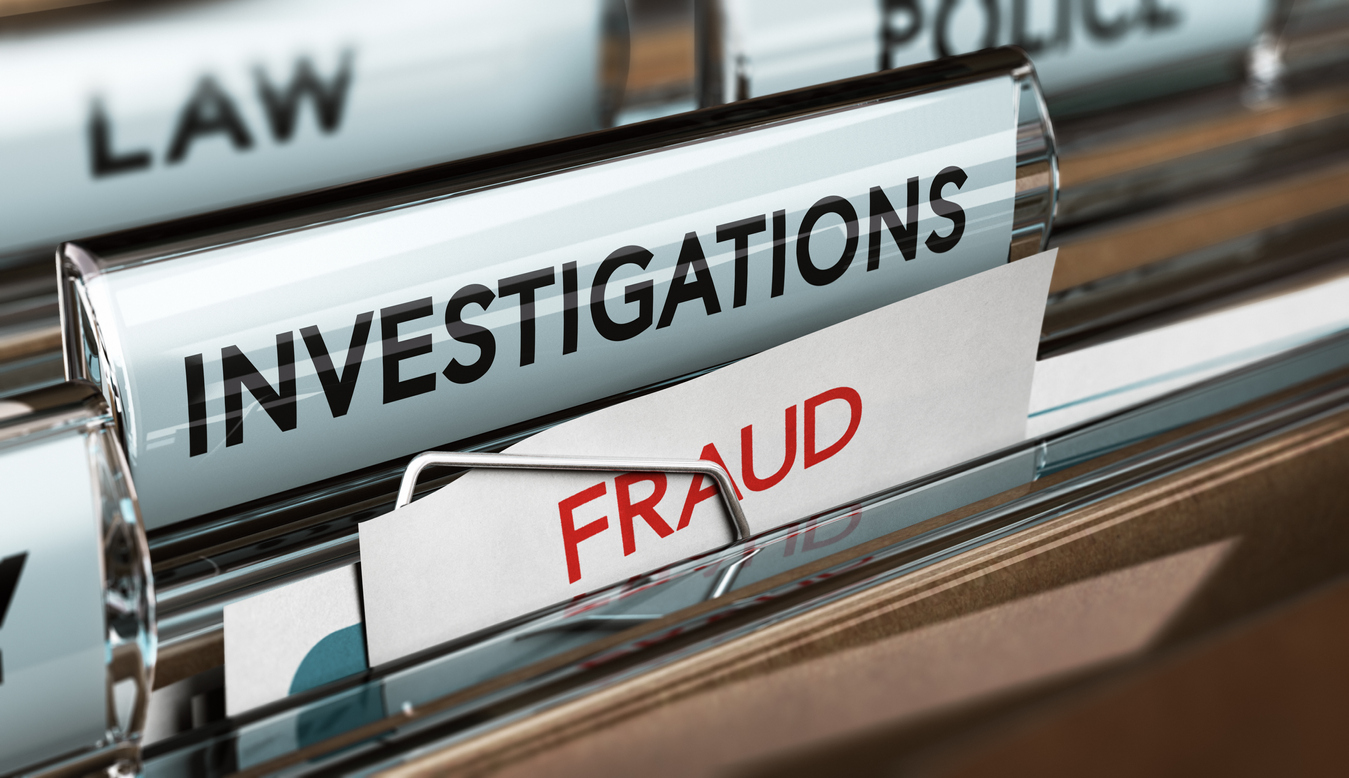The most common response I hear from business owners who are victims of employee fraud is “I never thought this would happen to me”. Employee theft, especially in the automotive industry, is common, because small businesses such as car dealerships have fewer internal controls in place to prevent and detect frauds. For example, dealerships may have a limited number of accounting staff, making it difficult to separate duties amongst multiple people. Some dealerships also handle large volumes of cash, which is particularly susceptible to theft since it can often be taken without detection.
Many car dealerships have fidelity or employee dishonesty insurance coverage, but do not know what their fidelity policies cover or what steps to take if they suspect their employees are stealing from them. This article discusses what fidelity insurance coverage entails, and what businesses in the automotive industry should do if they are faced with a possible fraud.
What is fidelity insurance?
Fidelity or employee dishonesty insurance provides coverage when a business has a loss caused by the dishonest acts of its employees. The dishonest act can involve the theft of cash, the theft of other property such as parts inventory and vehicles, and cheque and credit card forgery.
The policy is intended to cover the value of the value of the cash, securities, inventory, or other property that was taken. Any losses of income that resulted from the theft / fraud are not covered under a fidelity policy. For example, if your employee stole cash from your dealership and as a result, you were unable to earn interest income on the stolen amounts in your bank account, the lost interest income cannot be claimed under your fidelity policy.
Key elements of fidelity coverage
Fidelity policies do not cover any losses that result from accounting errors or mistakes. The losses claimed must be the direct result of a fraud or theft committed by an employee. To prove that a loss is due to fraud / theft, you can demonstrate a pattern of transactions that are unusual, or don’t follow normal policies and procedures. Also, evidence that the theft has been concealed by the employee through the destruction or alteration of documents, or by entering fraudulent journal entries in the accounting system can also support your fidelity claim.
For fidelity coverage to apply, the fraud or theft must be committed by an employee of the business. This means that any fraud committed by an outside party without the involvement of an employee is not covered. Fidelity policies will always define what an “employee” is, so care should be taken when reading the policy to understand the types of individuals that may not be covered (e.g. temporary employees, agents, contractors, owners or partners of the business).
There are cases where a fraud is committed by an employee, however, the victim company is not able to tie the fraud to a specific person. For example, a car dealership may notice that cash in their parts department has gone missing, but since multiple employees have access to the cash drawer, it may not be possible to identify the specific employee responsible for the theft. Under a fidelity policy, you are not required to identify a specific employee as long as you are able to reasonably prove that an employee was involved.
Fidelity policies cover losses that are suffered by the policy holder directly. In other words, if a dealership employee defrauds a customer, coverage under the fidelity policy would not apply, even if the dealership is legally and / or contractually obligated to reimburse that customer for their loss.
Common Schemes in the Automotive Industry Theft of Data / Proprietary Information
Dealerships are often faced with sales personnel at one dealership moving to another dealership, and taking proprietary information such as client lists and information. These types of losses do not generally fall under fidelity coverage, as these types of policies specifically exclude any losses that are caused by the erasure, destruction, or theft of data and confidential information (including intellectual property and trade secrets).
Since fidelity insurance policies do not compensate policy holders for thefts of intellectual property, some businesses opt to sue their former employees in civil court under actions for breach of contract, breach of fiduciary duty, or breach of confidence. Businesses can also apply for an injunction which prevents the use of the confidential information until the lawsuit has been settled. A forensic accountant can assist you and your legal counsel in quantifying any losses of income suffered as a result of the theft and investigating factual issues regarding suspected thefts of confidential information.
To prevent these types of losses, dealerships can require sales staff to sign confidentiality and non-compete agreements prior to the start of their employment and consult with employment law counsel to ensure they are properly protected.
Common employee fraud schemes that we have seen affecting dealership often involve the cash receipts and payments functions.
1. Theft of cash
The theft of cash is the most common form of fraud, since cash is difficult to trace. An owner should have both eyes open when transactions are conducted using cash payments. For example, a sale is made by the parts department at a car dealership, and the customer pays cash. The parts clerk steals the cash, and does not record the sale in the cash register. Therefore, there is no record that a sale was made or that cash was received, making this type of fraud difficult to detect.
2. Lapping of accounts receivable
Lapping requires a little more “bookkeeping creativity” on the part of the fraudster and occurs when an employee steals cash paid by one customer, and then conceals the theft by diverting cash received from another customer and applying it to the first customer’s receivable balance. As cash continues to be stolen, the fraudster must conceal the fraud by either continuing to steal customer payments, or writing off the accounts receivable balances for customers whose payments have been taken. This type of fraud requires the fraudster to maintain good records, in order to track which customer payments have been taken, and which customer balances need to be paid with the stolen funds.
3. Theft of inventory
Dealerships will normally expect some degree of inventory shrinkage, depending on how often physical counts are performed. Often, when inventory counts are done and compared to the amount of inventory recorded in the accounting system, some adjustments are required due to counting mistakes or accounting errors. As a result, these types of fraud often go undetected because many organizations will assume that any “missing” inventory is the result of normal shrinkage.
4. Fictitious supplier payments
If a dealership has one employee who is responsible for setting up and issuing payments to vendors and suppliers, this type of fraud can be committed quite easily, either by the employee single handed or in collusion with someone outside the organization. A fake supplier can be set up in the dealership’s accounting system, and the employee can issue payments for work never performed or goods never received. Another common scheme is to use legitimate vendors to issue duplicate payments, full payments for partial deliveries, or payments for work that has been overbilled to the dealership. In exchange, the employee can receive a portion of the payment as a bribe or kickback. Under both schemes, the employee may create fake purchase orders, invoices, shipping documents, or other source documents.
What To Do if You Suspect Fraud
If you suspect that an employee may have defrauded your organization you should:
1. Get help
The first and most crucial step is to seek the help of a professional with experience in these types of cases, such as a forensic accountant. It is always better to involve a forensic accountant early on in the investigation, to minimize further losses, reduce the likelihood that critical documents will be destroyed, and ensure the investigation is performed in a timely manner. A forensic accountant that is experienced in these types of matters can also assist in preparing a fidelity claim for your insurance company. A lawyer that specializes in fraud related matters can also provide advise as to the best course of action to take with regards to the important decisions you will be faced with such as the employee’s employment, while the investigation is being conducted.
2. Secure as many documents as possible
It is important to secure all of the documents that may provide a paper trail to understand if and how any fraud has occurred. Start with the documents and areas of the dealership over which the employee had control and involvement (e.g. bank statements, cheque stubs, vendor invoices, etc.). A forensic accountant can examine the documents and help develop a timeline of events, understand how the fraud was committed, identify any patterns (i.e. in terms of amount, time period, accounts used), and determine how the fraud was concealed.
3. Conduct an investigation
It is important to engage the right help such as a forensic accountant to assist you with the investigation. The accountant can assist you in directing how the investigation should be performed utilizing your own resources as appropriate to minimize costs and identify where it is important to conduct an independent investigation. Forensic accountants can identify potential individuals that should be interviewed, locate documents that are relevant to the investigation, and prepare an expert report that can be used in criminal and / or civil court.
4. Determine who must be notified in the event fraud has occurred
If you have fidelity insurance coverage, you will want to notify your insurance company, to ensure that your proof of loss and claim are filed within the timelines outlined in your policy. A forensic accountant with experience in fidelity insurance can help you prepare the claim in accordance with the terms of your policy to ensure that you recover the appropriate amounts. If you plan on filing criminal charges, the police should also be involved as early as possible. Generally you will need to provide them with a fully documented report to allow them to lay the appropriate charges.
5. Improve internal controls
Once you have identified how the fraud was committed, it is critical to evaluate the weaknesses in your internal controls that allowed the fraud to take place. The weaknesses should be addressed and any gaps fixed in order to prevent fraud from occurring again. An ounce of prevention truly is worth a pound of cure.
The statements or comments contained within this article are based on the author’s own knowledge and experience and do not necessarily represent those of the firm, other partners, our clients, or other business partners.






















